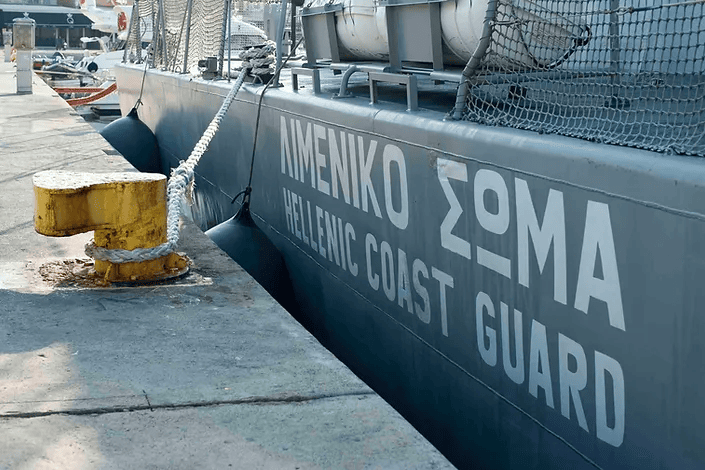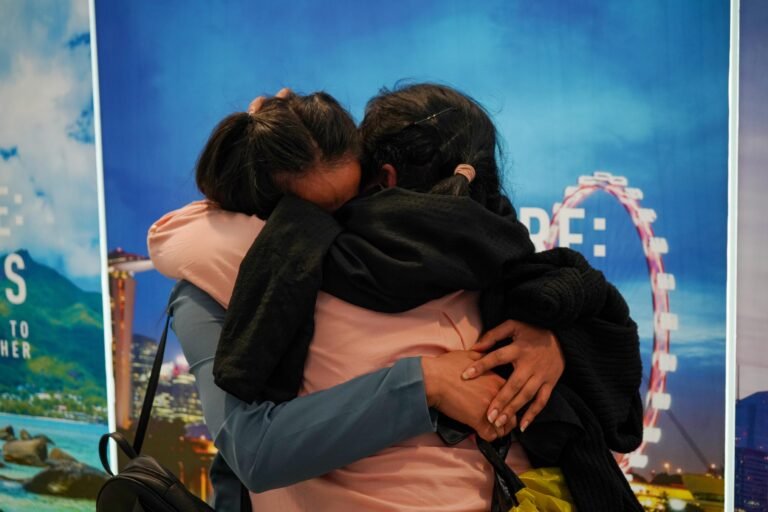Peter’s story’s remarkable. He faced oppression, violence and torture, three continents and near drowning. He was kind enough to share his story with us so that we can tell the world what’s happening to people seeking safety.
We’ve changed Peter’s name and some details to protect his identity.
Life at home
When looking back at his life at home, Peter remembers his barbershop most fondly of all. The independence that owning a business brought.
However, as he’s gay, he’d long “faced a lot of challenges”.
He was just about able to get by as he hid his sexuality. Things changed one night when local security guards – known locally as “vigilantes” – caught him and his fiance.
First they beat Peter, then they took a bribe from his partner so that they wouldn’t take them to the police.
However, a few days later, as he arrived home from work his neighbour told him that the police had been looking for him. “I quickly took 2 or 3 things and went away.”
He fled to his uncle’s house to hide. However, just days later he was shocked to see his photograph in the newspaper under a “wanted” sign.
He knew that his only option was to leave. Thankfully, he made it to Turkey.
Turkey and the start of a long journey
Turkey was tough. Peter had no papers and was forced to take on the most dangerous work.
He took a job in a company that cleaned old pipes. “We would put dirty old pipes in vats full of chemicals and they’d come out shining.”
The chemicals were so harsh that Peter would bleed from his nose after every shift.
He hoped to make it to Europe, feeling that this was where he would find human rights and justice.
His first step was to get to the Turkish coastal city of Izmir. He was crammed into the back of a van with 30 others. Peter’s a tall man and he was cooped up without being able to move for six hours.
When they arrived, they had to sleep out in the open for days while they waited for the right conditions to cross the sea. They had no food or water and some of the group were forced to resort to drinking their own urine.
A dangerous journey to Greece
When it was finally time to go, Peter and the others were confronted with a rickety dinghy. This was the start of a perilous journey that included multiple pushbacks and horrific violence that has left Peter with permanent hearing problems.
We’ve elected not to publish the details of the violence and danger Peter faced on his journey and entry to Greece. This is to avoid problems for him in future, if he were to be identified.
In the camp
After what he’d been through, Peter’s mental health had seriously deteriorated. He spent 5 months in the camp and became suicidal in that time. On one occasion, the people he shared a room with had to force a knife from his hands.
In this context, an asylum interview would always be a challenge. Even worse, Peter’s interview took place just days after arriving. He had no legal support.
As a result, he didn’t know what was relevant to his case and how much or what should be revealed. He didn’t tell the authorities about his arrest warrant from home as he was worried that he’d be sent back. But this would be central to any asylum case.
Inevitably, his asylum claim was refused. Twice.
Undocumented
Eventually, he made it to the mainland, where he had to rely on the kindness of others. A daily struggle.
He was in an incredibly vulnerable state. If you’re undocumented in Athens, you’re not only at risk of exploitation, but the police could pick you up at any minute and either put you in detention indefinitely or even illegally send you back to Turkey.
Peter was looking for support. He spoke to a lawyer who wanted €300 up front. He later found out a friend had given this money and never heard from the lawyer again.
This wasn’t the first time he hadn’t been happy with the legal support he’d received. He felt the first lawyer he worked with “was not serious about my case” while another never met him.
“That’s how I found my good lawyer”
He was back in touch with one of the organisations that he knew from Lesvos, who put him in touch with RLS. This is when he started working with Artemis.
“When you meet a good lawyer and explain things, you feel the difference.” Artemis asked a lot of questions and worked out what he would need. She then worked with other professionals to gather the evidence.
Protection and hope
Peter’s case is particularly challenging. When your asylum application has been rejected twice, that’s usually your last chance.
Artemis had to work extra hard to get Peter back into the system. She worked with a psychologist to show why he didn’t submit his criminal file from home and worked with an LGBTQ organisation to show his active participation in the local community.
She was successful and he’s now got his asylum card.
“When I got my card, I was so happy. I didn’t need to be afraid of police, I have happiness, hope, free movement, protection.”
Peter can now work and is in the process of finding a job.
This isn’t the end of the journey
Peter still needs to go through the asylum process. But he has a good case and his asylum card gives him some security and a means to fend for himself. And now he has our team helping him.
Peter’s experiences would crush most of us, but he found the strength to keep going. ”I made my mind up that I could never go back. I needed to be in a country where there are human rights.”
“Where there is life, there is hope. I really believe this.”
What’s next
We’ll now continue to work on his case and accompany him to an asylum interview in the new year.




